James Hogg: The shepherd who helped to shape Scottish fiction
- Published
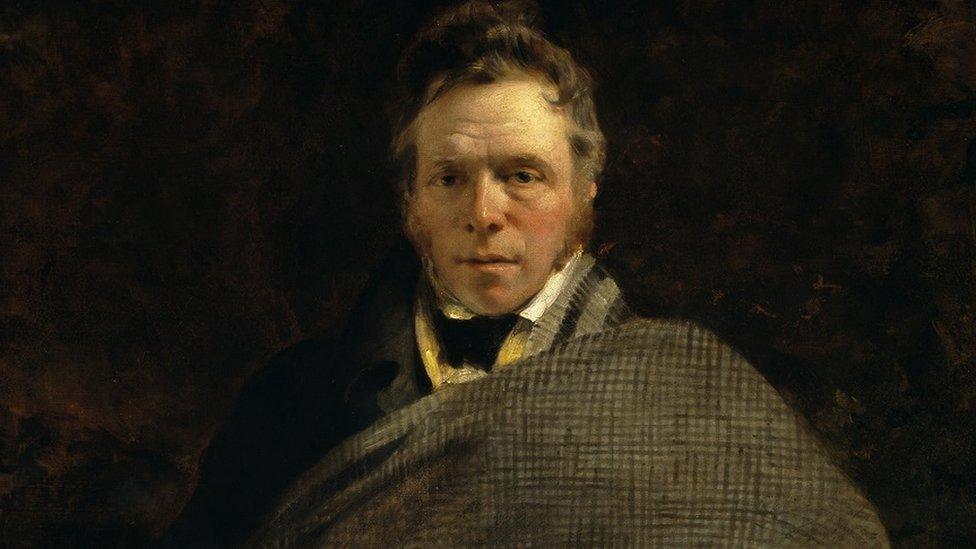
An event is celebrating the 250th anniversary of James Hogg's birth
A special celebration is being held to mark the 250th anniversary of James Hogg's birth in the Scottish Borders.
The "big party" - being held online - will look at why the writer, known as the Ettrick Shepherd, remains relevant and influential to this day.
Dr Valentina Bold, co-organiser of the event, said it was a chance to "celebrate and talk about Hogg and his influence".
But why is he seen as such a significant literary figure?
Who was James Hogg?
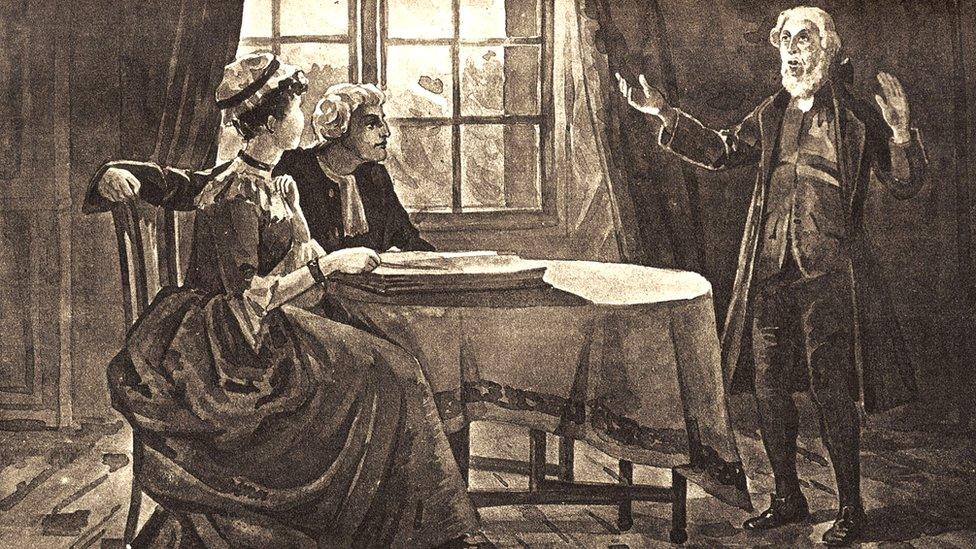
The Private Memoirs and Confessions of a Justified Sinner is still influencing modern writers
Born in Ettrick in 1770, Hogg spent most of his youth and early manhood as a shepherd and was almost entirely self-educated.
His talent was discovered early by Sir Walter Scott, to whom he supplied material for Scott's Minstrelsy of the Scottish Border.
Before publishing The Queen's Wake (1813), a book of poems concerning Mary Stuart, Hogg went to Edinburgh in 1810, where he met Lord Byron, Robert Southey, and William Wordsworth.
He was a prolific poet but is probably best known for The Private Memoirs and Confessions of a Justified Sinner (1824), a macabre tale of a psychopath that anticipates the modern psychological thriller.
He died in the Borders in 1835.
Why is he being celebrated?
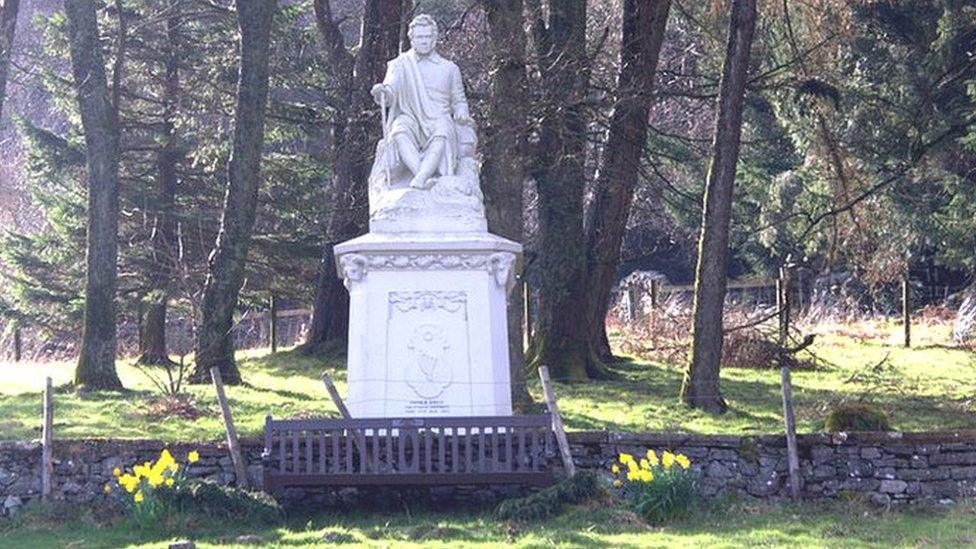
A monument to Hogg stands in his native Scottish Borders
Dr Bold describes Hogg as "a great Scottish writer".
"His work was well received in the United States and all over the world in his lifetime," she says.
"But it is only in the early to mid 20th Century it has started to become available in the way he published it first."
An event was held in his honour earlier this year in America - before lockdown - where he was likened to the songwriter Woody Guthrie.
"He was able to communicate what life was like for the average person," Dr Bold says.
"This was a guy who started with a maximum of about six weeks in school over the winter holidays and from then became an incredibly imaginative and original writer."
The start of Tartan Noir?

James Robertson's novel The Testament of Gideon Mack was heavily influenced by Hogg
Novelist James Robertson says Hogg's most famous work, The Private Memoirs and Confessions of a Justified Sinner, had a "big influence" on his own writing.
He used it as a model for the structure of his novel The Testament of Gideon Mack, which was long-listed for the 2006 Man Booker Prize.
He believes the influence of the Confessions had definitely increased down the years.
"That book - when it was first printed in the 1820s - it wasn't a success at all, in fact it really didn't do anything very much," he says.
"It wasn't until the middle of the 20th Century that it was reissued and people began to think this is actually a much more interesting novel than we thought."
He says the echoes of the work could still be seen.
"There is a trail that leads directly from him to Robert Louis Stevenson and Dr Jekyll and Mr Hyde."
He says that partly because Hogg wrote about "murder and the Gothic" and the "slightly macabre, dark sides of things", there are still echoes of his influence in Scottish crime writing and contemporary fiction.
Humble beginnings
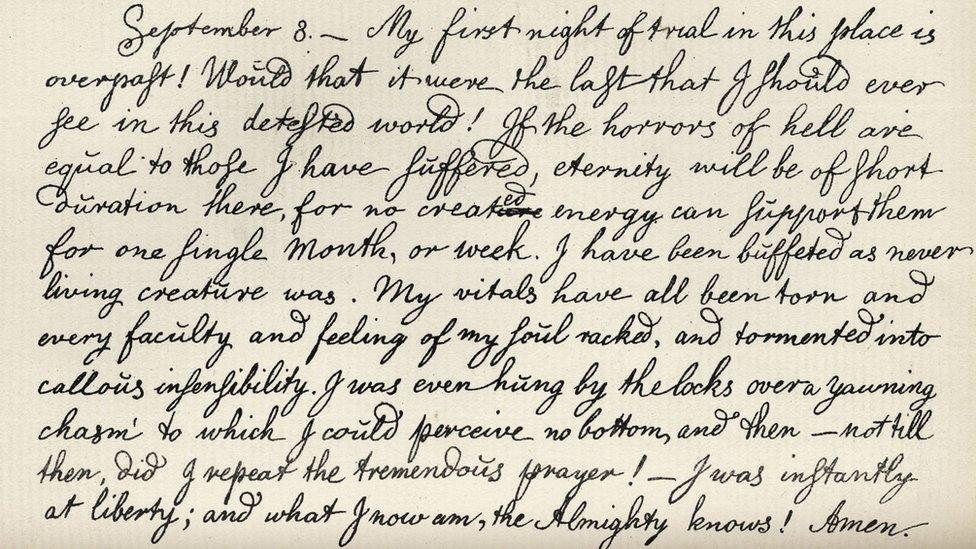
Hogg had to teach himself how to read and write
Mr Robertson says Hogg's literary significance is all the more remarkable given his start in life.
"He came from a very poor background. He had to educate himself and teach himself how to read and write," he says.
"He came from the peasantry.
"And yet he had, from a very early age, a really big ambition to be a success as a writer."
This was backed up by a deep knowledge of the traditional folklore, tales and songs of his native Borders.
"Hogg kind of represents somebody unusual breaking into the world of literature and letters and he is important for that reason as well," adds Mr Robertson.
Still a major figure?
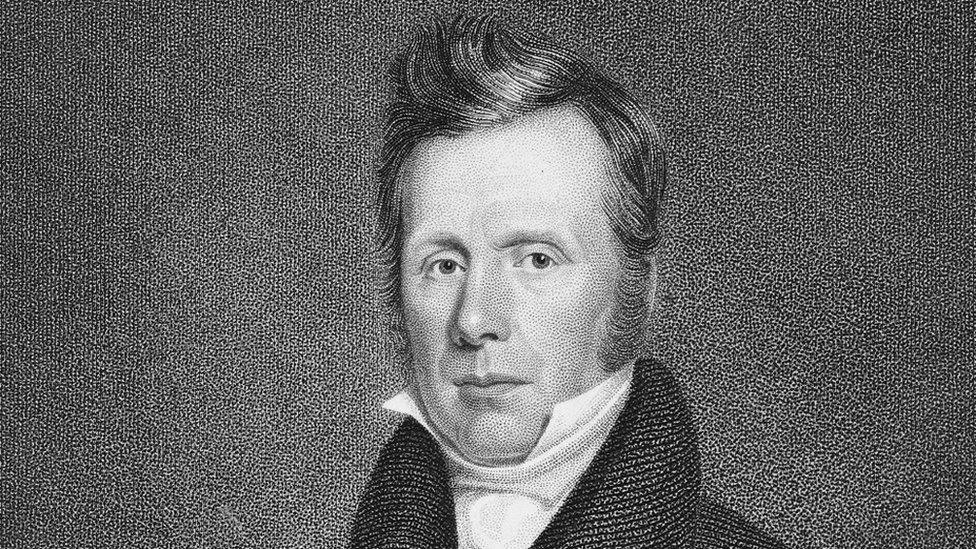
Hogg's most famous work is still seen as being "ahead of its time"
Walter Scott and Robert Burns remain "much better known" than Hogg, something Mr Robertson believes may be due to the "uneven" quality of his work.
Writer and broadcaster Billy Kay says Hogg deserves, nonetheless, to be recognised as one of Scotland's great writers.
"The Confessions of a Justified Sinner is a novel that will always be ahead of its time," he says.
He compares it to Burns' Holy Willie's Prayer in sending up the Calvinist tradition, but in a way that was "chillingly frightening and full of atmosphere".
"It was as if he was able to bring the other-worldliness of the Borders ballads into a novel on a subject that was totally different," he says.
"Everyone who reads the Confessions, it stays with them."
Moreover, he said, there are writers today who were "directly influenced" by Hogg.
"He deserves to be celebrated a thousand years on - he really is a major, major literary figure," he says.